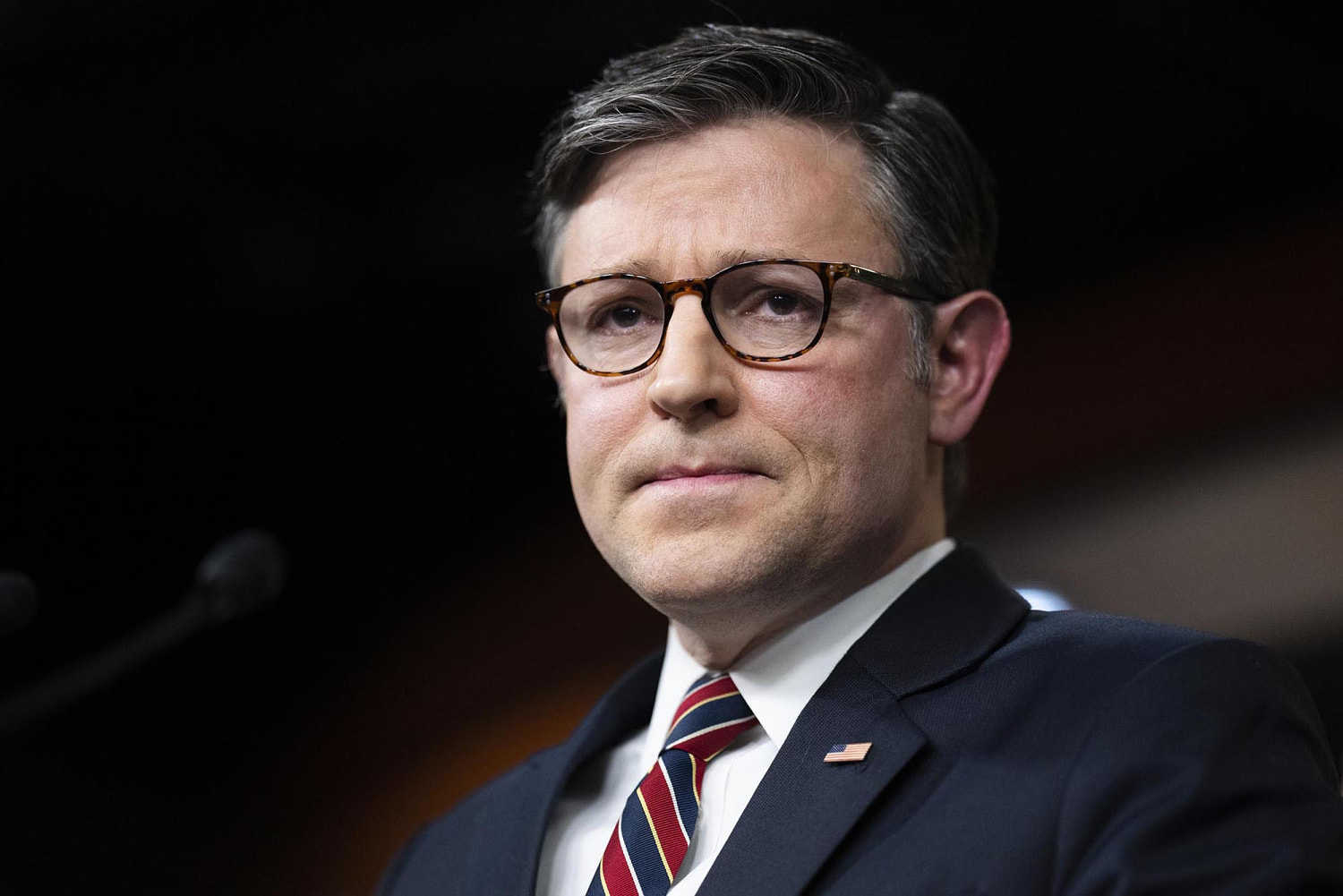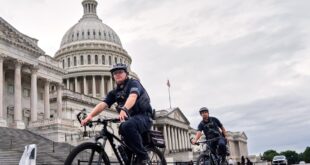

WASHINGTON — Republicans are already hitting some snags as they begin the work of crafting a bill for President Donald Trump’s sweeping domestic policy agenda. And they haven’t even made some of their hardest decisions yet.
Fresh off a two-week recess, House committees have begun marking up their respective pieces of the package, which aims to extend Trump’s 2017 tax cuts, boost funding for immigration enforcement and the military, and increase the debt ceiling. In their hunt for steep savings to pay for it all, Republicans are starting with some of the lowest-hanging fruit when it comes to spending cuts.
But that process has already sparked some skirmishes among Republican lawmakers, offering a preview of the bigger intraparty fights — such as whether to slash funding for anti-poverty programs like Medicaid — that are still to come.
Follow live politics coverage here
Rep. Sam Graves, R-Mo., the chair of the House Transportation and Infrastructure Committee, on Wednesday was forced at the eleventh hour to yank a provision out of his panel’s portion of the package that would have created a new $20 annual fee on nearly all passenger vehicles after conservatives revolted.
Separately, on the Judiciary Committee, a push by Rep. Darrell Issa, R-Calif., to codify Trump’s proposal of a “gold card” visa for wealthy foreigners was rejected by conservatives opposed to expanding visa programs.
And on the Education and Workforce Committee, Chairman Tim Walberg, R-Mich., on Tuesday pushed through an overhaul of student loan programs that would cut $351 billion in federal spending, drawing criticisms from Democrats. The most contentious part of that overhaul, Walberg said, is a “risk-sharing” provision that would make colleges, universities and trade schools partially responsible for unpaid student loan balances.
“All the committees are making tough decisions, and we’re gonna build this bill,” said Rep. August Pfluger, R-Texas, the chairman of the Republican Study Committee, the largest caucus of conservatives on Capitol Hill.
After passing their budget framework for Trump’s “one big beautiful bill” earlier this month, House Republicans are now trying to fill out the details.
Speaker Mike Johnson, R-La., has said he thinks the House can cobble together all the separate pieces and send the package to the Senate by Memorial Day — an ambitious but not impossible deadline. But it means Republican leaders, committee chairpeople and rank-and-file members are now having the politically tricky conversations about how to pay for the bill and what might get cut.
And every House Republican’s opinion matters in the process because of the party’s fragile 220-213 majority.
“Just about every step of the way has been difficult with a small majority,” Majority Leader Steve Scalise, R-La., told reporters, adding that he’s also had “a lot” of conversations with senators as well to make sure both chambers are on the same page.
Perhaps the trickiest issue Republicans still need to resolve is how to handle potential Medicaid cuts, which vulnerable and moderate Republicans have strongly warned against.
The Energy and Commerce Committee, which oversees the program and is responsible for finding a whopping $880 billion in cuts for the bill, is planning to hold a markup on May 7, but has to finalize its portion of the package. The committee’s chairman has been meeting with members from all across the ideological spectrum as they try to find a solution.
But even smaller, less innocuous issues can trip up the entire process. The vehicle fee was an example of an issue that unexpectedly blew up at the last minute. Graves, the Transportation Committee chairman, had included the provision in his panel’s package to help meet the committee’s so-called “reconciliation” instructions, which dictate what each panel is required to cut or allowed to spend.
Rep. Scott Perry, R-Pa., the former chair of the hard-right Freedom Caucus, offered an amendment to kill it as conservatives disparaged it as a “car tax.” Graves’ team checked in with committee members to gauge support for the fee, two Republican sources said, but it became clear there was too much opposition and Graves made the call Tuesday night to pull it from the package.
The committee was then forced to find other ways to hit its saving goals. The package will now boost an annual fee for electric vehicles to $250, up from the originally proposed $200, as well as reduce funding for air traffic control modernization to $12.5 billion, down from the initial $15 billion that was proposed.
“EV owners have not been paying anything into the highway trust fund and justifiably, now they will,” said Rep. Brian Babin, R-Texas, who opposed the $20 passenger car fee. “I’m very glad there won’t be any fees on gasoline driven vehicles whose owners and drivers have already been paying their fair share into the highway trust fund through the federal gasoline tax.”
Another GOP spat emerged on the Judiciary Committee over visas. Issa, a senior member of the panel, had hoped to include in Wednesday’s committee’s markup Trump’s idea to sell $5 million gold card visas that would offer immigrants legal permanent residency and a path to citizenship.
Issa argued the proposal could bring in at least an additional $150 billion to pay for the bill. But Issa said another member of the panel, Rep. Chip Roy, R-Texas, a member of the far-right Freedom Caucus, effectively vetoed the idea.
“I got screwed out of the gold card because a few of our members wouldn’t go along with having an expansion of revenue related to visas, EB-5 and H-1,” Issa said in an interview Wednesday. “The president’s point [is] that we should be able to generate revenue by bringing the investors in to invest, and we have a program that brings in very little by comparison. But Chip killed it.”
“I would be voting for reconciliation,” Issa added, “but I would be disappointed when it’s left out.”
Roy did not respond to a request for comment. A Judiciary Committee spokesman suggested that Republicans still could revisit the gold card issue.
“We are working hand-in-glove with the White House and totally support President Trump’s agenda,” spokesman Russell Dye said in a statement Wednesday.
These types of decisions, however, are the easy ones. The hard ones will need to be resolved in the coming days and weeks. On Wednesday afternoon, Johnson hosted a meeting with Republicans from blue states like New York, New Jersey and California who are aggressively pushing to raise the cap on the state and local tax (SALT) deduction in the package.
The House Ways and Means Committee, where that issue will be decided, will likely meet sometime next week.
“It was a lively discussion but we’re still far away from a deal,” Rep. Nick LaLota, R-N.Y., said as he left the nearly hourlong SALT meeting. “I want to ensure we make whole as many of our middle class families as possible.”
On Medicaid, Republicans facing tough re-election fights in the 2026 midterm elections are worried it’s not mathematically possible to achieve their spending targets without a steep cut to Medicaid, citing estimates from the nonpartisan Congressional Budget Office.
Republican leaders have said they only want to target waste, fraud and abuse in the Medicaid system. Leaving a meeting with House Republicans on Wednesday, Sen. Lindsey Graham, R-S.C., the chair of the Budget Committee, reiterated that the GOP wants to impose work requirements for Medicaid eligibility to raise the revenue needed to fund Trump’s agenda.
“The whole idea of using Medicaid to help able-bodied people who could be working, most Americans will say no to,” Graham said. “Medicaid was designed to help poor people and disabled people … We got a chance to fix it. And if we fail, I think we’ll pay a heavy price.”
 Latest World Breaking News Online News Portal
Latest World Breaking News Online News Portal






